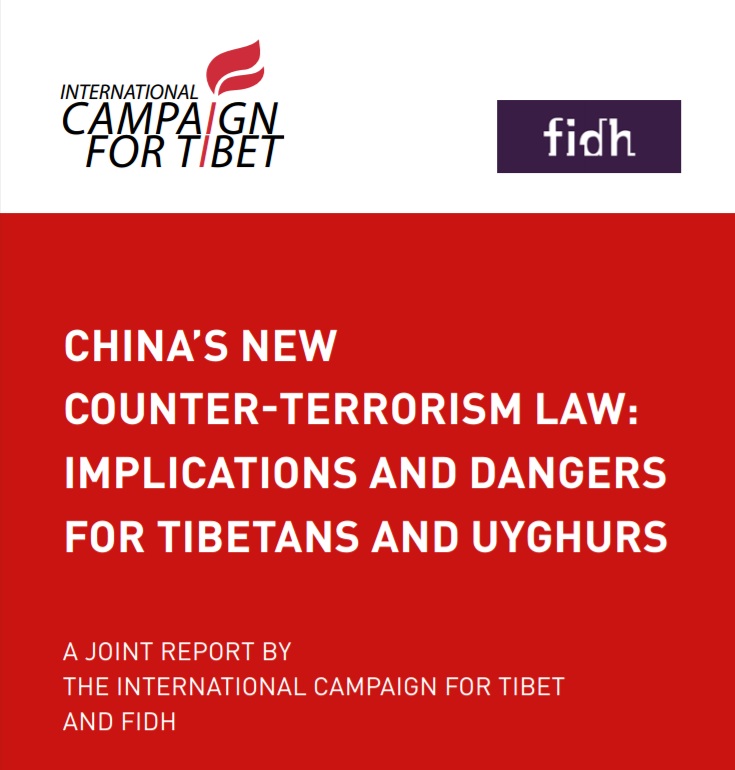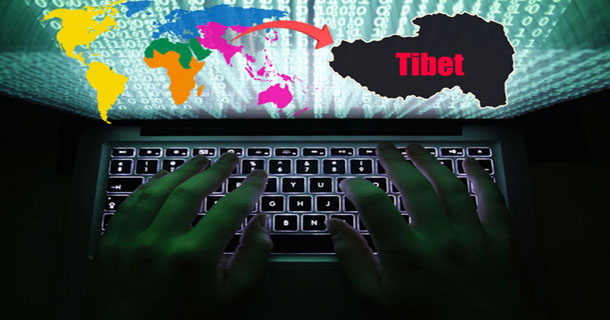A new report has put the spotlight on China’s counter-terrorism laws, stating that they pose serious human rights risks. Produced by the International Campaign for Tibet (ICT) and the International Federation for Human Rights (FIDH), its publication comes at the same time as the passing of a new Cybersecurity Law by the Chinese government, which has also drawn criticism from outside observers.
The report, which draws on the findings of an international round-table held in June this year, highlights several problems with China’s counter-terrorism laws. These include its “vague definition of terrorism”, the “lack of independent judicial legal recourse” and “the increased concentration of power and attack on civil society by the Chinese Communist Party (CCP) leader Xi Jinping”. It also notes that the Chinese government has broadened the scope of “free expression” to allow it to supress dissent in Tibet and Xinjiang.
Further risks to Tibetan freedoms are presented by China’s new Cybersecurity Law, which was passed on November 7. This law will impose even stricter internet controls, and requires companies to censor information “prohibited” by the government and support state surveillance requests. This has severe implications for Tibetans, as sharing stories of their struggle with the outside world will become even more difficult than it currently is. Indeed, China already uses its counter-terrorism policies to blur the lines between violent acts and peaceful dissent, cracking down on peaceful expressions of Tibetan identity and culture.
FIDH’s Director of Operations Marceau Sivieude has asserted that this “violates human rights law” and “encourages extremism”. Additionally, Vincent Metten, the ICT’s EU Policy Director, warned that these “sweeping measures” are likely to “heighten tensions”. He continued, “Peace and stability cannot be achieved through hyper-securitisation, nor by labelling as terrorist [the] Dalai Lama, whose leadership has ensured that Tibetans do not turn to violence in response to oppression.”
 The report makes recommendations to the international community on how best to tackle China’s repressive policies. It lists several options, including promoting dialogues on counter-terrorism and international cooperation, and NGO (non-government organisation) monitoring. It also recommends that “all countries, notably Thailand, Malaysia and Cambodia, should respect the non-refoulment policy and ensure that individuals wrongly accused of terrorism in violation of international law are not forcibly returned to China”. However, concerns have been raised about the ability of certain governments, namely the United Kingdom, to hold China up to these standards, when they too hope to pass stricter cybersecurity laws. In 2015, the last time governments criticised China’s spying laws, Beijing bristled at the hypocritical “double-standards” they sought to impose.
The report makes recommendations to the international community on how best to tackle China’s repressive policies. It lists several options, including promoting dialogues on counter-terrorism and international cooperation, and NGO (non-government organisation) monitoring. It also recommends that “all countries, notably Thailand, Malaysia and Cambodia, should respect the non-refoulment policy and ensure that individuals wrongly accused of terrorism in violation of international law are not forcibly returned to China”. However, concerns have been raised about the ability of certain governments, namely the United Kingdom, to hold China up to these standards, when they too hope to pass stricter cybersecurity laws. In 2015, the last time governments criticised China’s spying laws, Beijing bristled at the hypocritical “double-standards” they sought to impose.





 Print
Print Email
Email